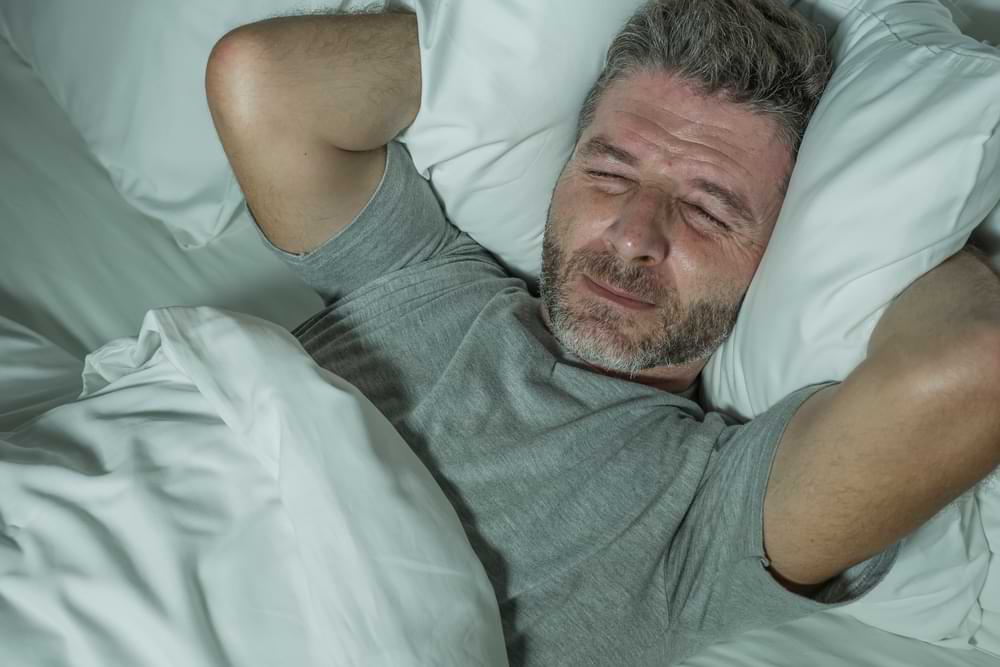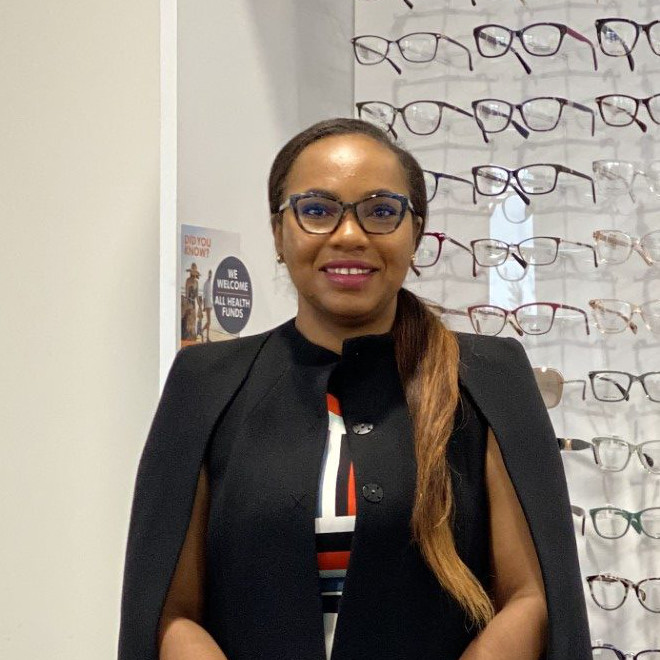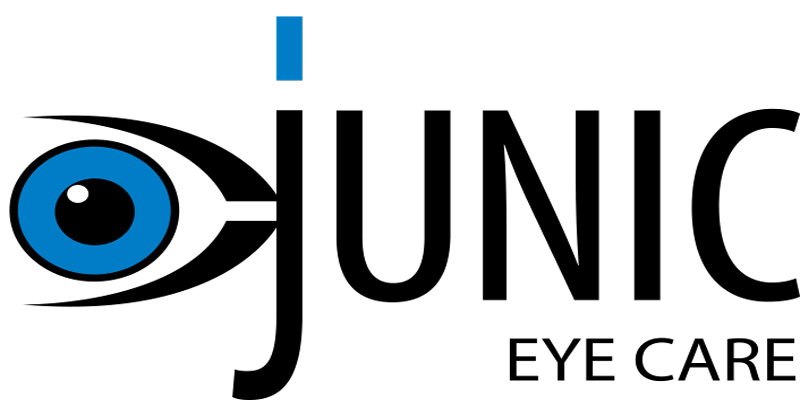Have you ever thought why your eyes feel gritty and tired, even after a long sleep?
It’s a familiar problem for many in Canberra, where our dry, windy weather is tough on our eyes.
There’s a common thought that getting some sleep means waking up with healthy, refreshed eyes. But that’s not always true.
I’ve seen this firsthand at our eye care practice. One of our patients, Lina, a 47 year old virtual assistant, used to wake up every day with dry, uncomfortable eyes and thought it was just a part of getting older. Even after adjusting for digital screen usage and making other lifestyle changes, she still woke up each day with uncomfortable eyes. After talking with us she was surprised to learn how much sleep patterns could be affecting her dry eye symptoms.
In case we haven’t met, I’m Juliet Menakaya, Canberra optometrist and owner of Junic Eyecare. At our clinic we are passionate about helping our patients to overcome the challenges of dry eye syndrome. So in this article I’m going to talk about why quality of sleep and dry eyes are interrelated issues. I’ll share some tips on what you can do about it.
If you’d like a one-to-one consultation to discuss what we can do overcome your itchy, dry eyes and improve your quality of life, then reach out today and book and appointment.
Or, if you’d just like to understand better about the surprising connections between sleep and dry eye disease, read on!
Bad Sleep Leads to Dry Eyes
You know how you feel after a bad night’s sleep – groggy, grumpy, and just not on your game. But have you thought about what it does to your eyes? Turns out, not getting enough Z’s can make dry eye symptoms a whole lot worse. Insufficient sleep can affect both the quantity and quality of tears that our eyes produce.
Circadian Rhythm Disturbances:
The link between dry eyes and your daily sleep pattern might have to do with a brain chemical called 5-HT, which helps regulate your body’s internal clock and is also found in human tears. People with a certain type of dry eye, where they don’t produce enough tears, often have higher levels of this chemical in their tears.
Getting Older and Changing Sleep
As we get older, our sleep patterns often change. Older adults might find themselves waking up more often during the night or sleeping less deeply. This can mean more time with your eyes not fully closed, leading to – you guessed it – drier eyes. It’s like a double whammy of getting older and having to deal with both sleep changes and dry eyes as well!
Not Closing Eyelids Properly During Sleep
Have you ever heard of nocturnal lagophthalmos? It sounds like something out of a sci-fi movie, but it’s actually a pretty common eye condition. When we sleep, we’re supposed to close our eyelids completely. But for some individuals, that doesn’t happen. Their eyelids don’t fully shut, leaving a little gap. They get exposed all night long, leading to all that dryness and irritation you feel when you wake up. This can lead to a condition known as exposure keratopathy, a condition that affects the cornea, the clear front surface of the eye.
Studies on the “Bad Sleep / Dry Eye” Connection
A 2021 European study also found that people who suffer from “highly symptomatic dry eye” were more than three times as likely to also be experiencing poor sleep, as those who did not have poor sleep.
A 2022 Chinese study found a significant correlation between poor sleep and dry eyes.
Sleep disorders are particularly common in patients with Sjögren’s syndrome and are most common in patients with primary Sjögren’s syndrome.


Diagnostic Techniques and Treatments at Junic Eyecare
When you visit Junic Eyecare with dry, itchy eyes, we go full detective mode to figure out exactly what’s causing the trouble. And for that, we’ve got some cool technology, like the Oculus 5M diagnostic machine.
Getting Up Close with the Oculus 5M
The Oculus 5M is an advanced diagnostic tool we use to check out your eyes. It lets us take a super detailed look at your eye’s surface, measuring things like tear film and oil gland function. It’s like having a high-tech microscope specifically for your eyes, showing us what’s going wrong and why your eyes feel like a desert.
Why Accurate Diagnosis Matters
Getting the diagnosis right is key. It’s like knowing whether your car needs an oil change or a whole new engine. With the Oculus 5M’s help, we can pinpoint the exact cause of your dry eyes. This means we can come up with a treatment plan that’s tailored just for you – no one-size-fits-all solutions here.
Tailored Treatments for You
So, what kind of treatments are we talking about? At Junic Eyecare, we’ve got plenty of options. Here are a few:
- Meibomian Gland Expression: Sounds fancy, right? It’s actually pretty straightforward. We gently press on the glands in your eyelids to get them unclogged and working right, helping your eyes stay moist. It’s a quick and painless procedure.
- Bruder Mask Treatments: Think of this as a spa treatment for your eyes. These masks are heated up and placed on your eyes, helping to loosen up any blockages in your glands. It’s like a warm compress but more high-tech and way more relaxing.
- Blephex Debridement: This one’s for cleaning up the eyelid margins. We use a special tool to gently remove any scaly, crusty stuff that’s been building up and messing with your eye health.
At Junic Eyecare, we can find what works best for you. No two pairs of eyes are the same, so why should their treatments be? Whether it’s getting those eyelid glands working again or just a good old clean-up, we’ve got you covered.
Lifestyle Adjustments to Reduce Dry Eye Symptoms
We’ve got some great treatments at Junic Eyecare, but there’s a bunch you can do on your own to help keep those eyes feeling good. A few tweaks in your daily routine and diet can really make a difference with dry eye symptoms.
Stay Hydrated and Mind Your Environment
First up, drink plenty of water – it’s super important. Keeping hydrated helps maintain the moisture in your eyes. Think of it as watering a plant; you need enough water to keep it from drying out.
The Magic of Omega 3 Fish Oil
You’ve probably heard about Omega 3’s being good for your heart, but guess what? They’re great for your eyes too! Omega 3 fish oil can help soothe and reduce dry eye symptoms. It’s like an internal moisturizer for your eyes. The most effective way to get it is by taking supplements – just a little change in your diet for happier eyes.
Take Eye Breaks
Simple things like remembering to blink more often when you’re glued to your computer screen can help. It’s easy to forget to blink when you’re “in the zone”, but regular blinking is like hitting the refresh button for your eyes. Also, try to give your eyes regular breaks from screens – maybe follow the 20-20-20 rule: every 20 minutes, look at something 20 feet away for 20 seconds.
Protect Your Eyes Outdoors
Don’t forget sunglasses when you’re out and about; they protect your eyes from the wind and sun, which can dry them out, not to mention that UV protection should ALWAYS be priority. Wraparounds work best when it comes to shielding your eyes from all the elements.
Add a Humidifier to Your Bedroom
By using a humidifier, you’re creating a more eye-friendly environment while you sleep. This extra humidity helps keep your eyes from drying out, reducing the irritation and discomfort you feel in the morning. Plus, it’s not just good for your eyes; it can improve your overall sleep quality and even benefit your skin. Think of it as creating a mini spa environment in your bedroom, where your eyes get to relax and rejuvenate all night long.
CPAP Devices and Dry Eyes
Now, here’s something specific: people using CPAP machines for sleep apnea might know this all too well. These machines are great for helping you breathe better at night, but they can sometimes blow air around your eyelids, drying out your eyes. It’s like having a tiny fan pointed at your eyes all night. Not ideal for keeping them moist, right? CPAP users should ensure the masks are fitted properly to avoid leakage which undeniably leads to dry eyes.
Check Your Bedroom Fans
Speaking of fans, be aware that sleeping with a room fan turned on can dry out your eyes, especially if it’s pointed directly at your face. The constant airflow from a fan can increase tear evaporation, leaving your eyes less lubricated. You should direct the airflow away from your face or try to use a lower setting.
Check Your Pillows
Allergens in your pillow or bedding, such as dust mites or synthetic fibers, can irritate your eyes. This irritation can lead to inflammation and dryness. Using hypoallergenic pillows or regularly washing bedding in hot water can help reduce this risk.
Moisture Chamber Goggles
If you can get used to wearing goggles while you sleep, moisture chamber eyewear can be incredibly helpful for managing dry eyes overnight. They create a protective barrier that traps moisture close to the eyes, which helps to prevent the dryness that can occur from exposure to the air.
Eyelid Tape
Eyelid tape can offer a simple solution for those with dry eyes by helping keep the eyelids closed during sleep, thus maintaining eye moisture; however, it might not be suitable for everyone as it can cause skin irritation or discomfort, and isn’t always effective if the tape doesn’t stay on throughout the night.
Check Your Sleeping Position
Can changing the position of how you lie in bed really help reduce dry eye symptoms? If you sleep in a way that your eyes are pressed against the pillow or if the pillow causes your eyelids to partially open, it can lead to increased tear evaporation during the night. This is more likely to happen with certain sleeping positions, like sleeping on your stomach or side, where your face is in direct contact with the pillow.
If you’d like to learn more about whether a different pillow might help you achieve a better “sleeping posture”, or better utilize moisture goggles, check out the following video from the Dr. EyeGuy YouTube channel.
Regular Eye Check-Ups: Key to Managing Dry Eyes
Last but definitely not least, let’s chat about regular eye check-ups. It’s not just about updating your glasses prescription – these check-ups can catch dry eye issues before they turn into a bigger headache.
Think of regular eye exams as your early warning system. We can spot signs of dry eye syndrome before you even start feeling the scratchiness or discomfort. By keeping up with your eye appointments, we can keep tabs on how your eyes are doing over time. If we see any changes or signs of dry eyes, we can jump right into action.
And remember, dry eyes aren’t just a one-time thing for many people. It can be an ongoing battle. So, having regular check-ups means we’re always in tune with what your eyes need at any given time.
So, don’t wait for your eyes to feel scratchy before you come to see us. Regular check-ups are your best bet in keeping your eyes happy and healthy!
Conclusion
Poor sleep and dry eyes is more than just a minor annoyance. It’s a wake-up call (pun intended!) to take our eye health seriously. Over time, leaving these symptoms unchecked can lead to more serious eye health issues. But don’t worry, there’s plenty we can do to turn things around.
In Canberra’s challenging climate, with its dry air and blustery winds, our eyes are up against a lot. And let’s not forget the impact of our daily habits, like staring at screens for hours or sleeping with a fan on. These little things can add up, making our eyes work overtime to stay moist and healthy. But the good news is, clinical dry eye treatment along with small changes in our lifestyle can make a big difference.
So, if you’re tired of waking up with eyes that feel like they’ve been on a desert trek, it’s time to take action.
Regular eye check-ups are key, and we’re here to help you every step of the way. Don’t let dry eyes be the norm. Give us a call or swing by Junic Eyecare, and let’s chat about how we can help you get back to waking up with happy, healthy eyes. Remember, your eyes deserve the best care, and we’re here to provide just that.
To visit our optometry practice, click the “Book Online” button at the top of the page or call (02) 6152 8585 today.
You’ll find our clinic conveniently located in the Molonglo Health Hub, just a short 10 minute drive from central Canberra, with plenty of free parking when you get here.

CANBERRA OPTOMETRIST
Juliet obtained her Doctor of Optometry degree from the University of Benin, Nigeria in 2006. She completed an internship programme before migrating to Australia, where she completed a master’s degree in public health at the University of Sydney in 2014. Following this, Juliet obtained a Master of Orthoptics from the University of Technology Sydney (UTS) in 2017.
Juliet has completed her competency in optometry examination with OCANZ (Optometry Council of Australia and New Zealand), and obtained her ophthalmic prescribing rights from ACO (Australian College Of Optometry Victoria). Juliet has worked in various positions, including retail Optometry, the Ophthalmology Department at Canberra Hospital, and more recently, at the John Curtin School of Medical Research (ANU).
As a dedicated Canberra optometrist, Juliet is passionate about helping people with low vision, and binocular vision anomalies hence her interests in Low Vision Rehabilitation, Eccentric Viewing Training and Paediatric optometry.

